

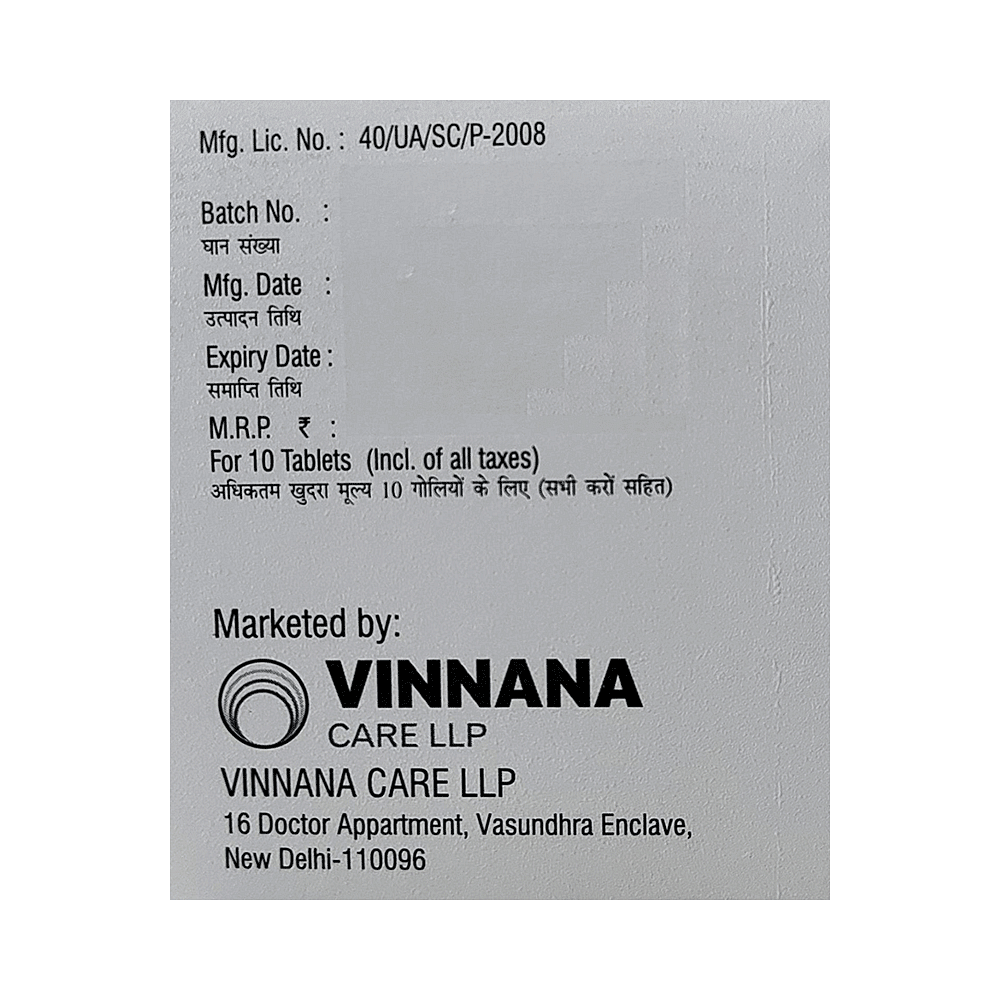
Cpar-SP Tablet
Manufacturer
Vinnana Care LLP
Salt Composition
Aceclofenac (100mg) + Paracetamol (325mg) + Serratiopeptidase (15mg)
Key Information
Short Description
Cpar-SP Tablet is a combination medicine used to relieve pain and swelling in various conditions like muscle pain, joint pain, and postoperative pain.
Dosage Form
Tablet
Introduction
Cpar-SP Tablet is a combination medicine used to relieve pain and swelling in various conditions like muscle pain, joint pain, and postoperative pain. It effectively alleviates pain and inflammation in conditions like rheumatoid arthritis, ankylosing spondylitis, and osteoarthritis.
Directions for Use
Take this medicine in the dose and duration as advised by your doctor. Swallow it as a whole. Do not chew, crush or break it. Cpar-SP Tablet is to be taken with food.
How it works
Cpar-SP Tablet is a combination of three medicines: Aceclofenac, Paracetamol and Serratiopeptidase. Aceclofenac is a non-steroidal anti-inflammatory drug (NSAID) and Paracetamol is an antipyretic (fever reducer). They work by blocking the release of certain chemical messengers in the brain that cause pain and fever. Serratiopeptidase is an enzyme which works by breaking down abnormal proteins at the site of inflammation and promotes healing.
Quick Tips
You have been prescribed this combination medicine for relieving pain and inflammation. Take it with food to avoid getting an upset stomach. It may cause dizziness and sleepiness. Do not drive or do anything that requires mental focus until you know how Cpar-SP Tablet affects you. Avoid consuming alcohol when taking Cpar-SP Tablet as it may cause excessive drowsiness and increase the risk of liver damage. Do not take it with any other medicine containing acetaminophen (drugs for pain/fever or cough-and-cold) without asking your doctor first.
Related Medicines
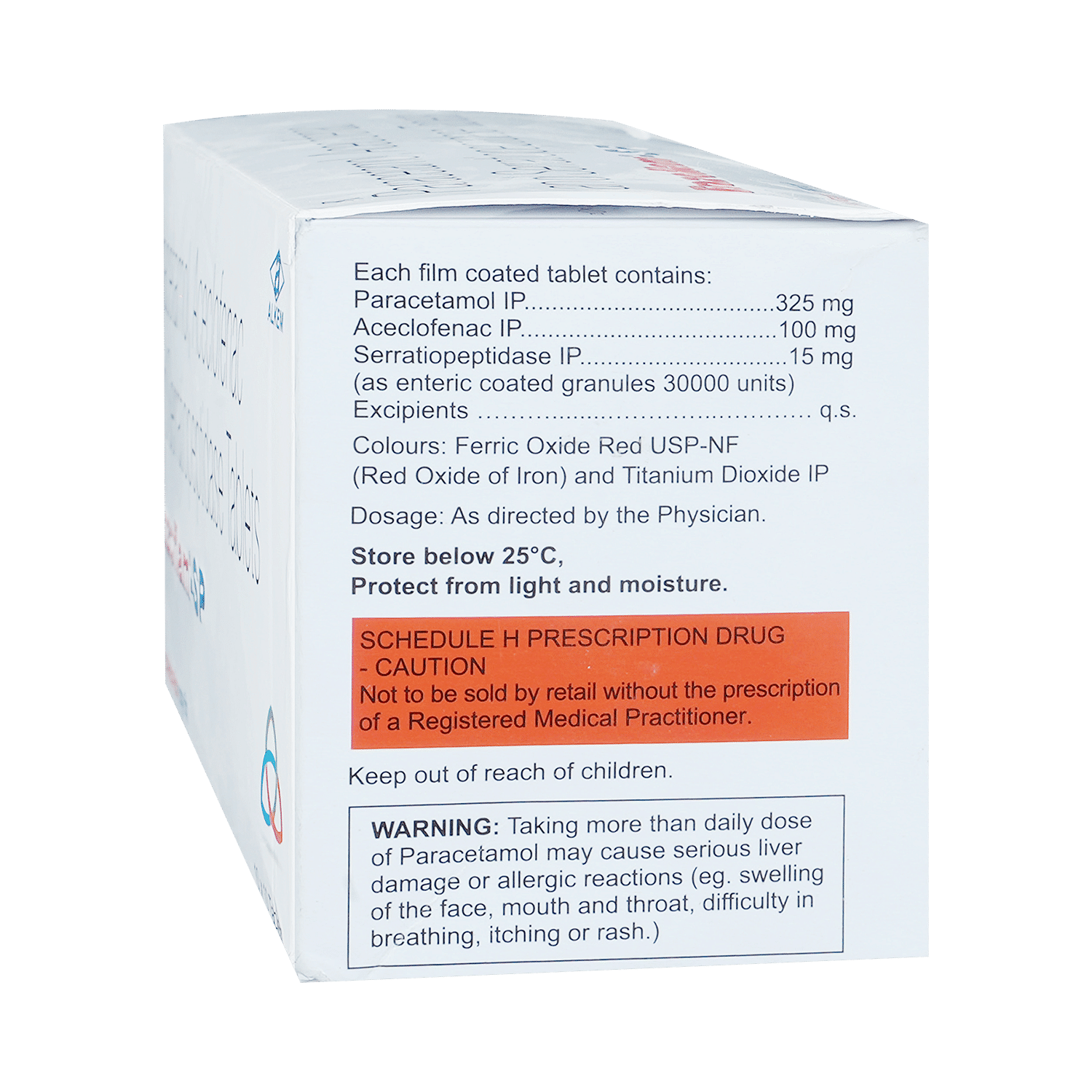
Enzoflam-SP Tablet
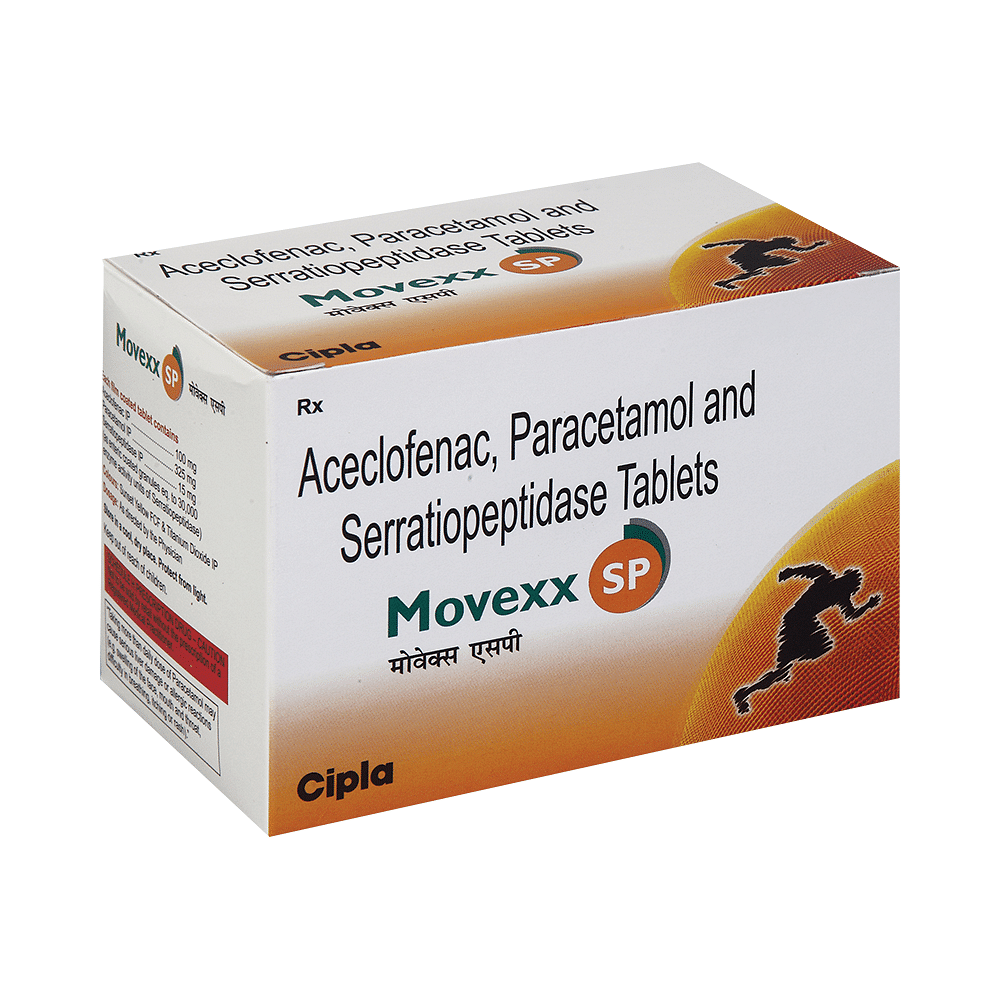
Movexx SP Tablet

Acewok Plus Tablet
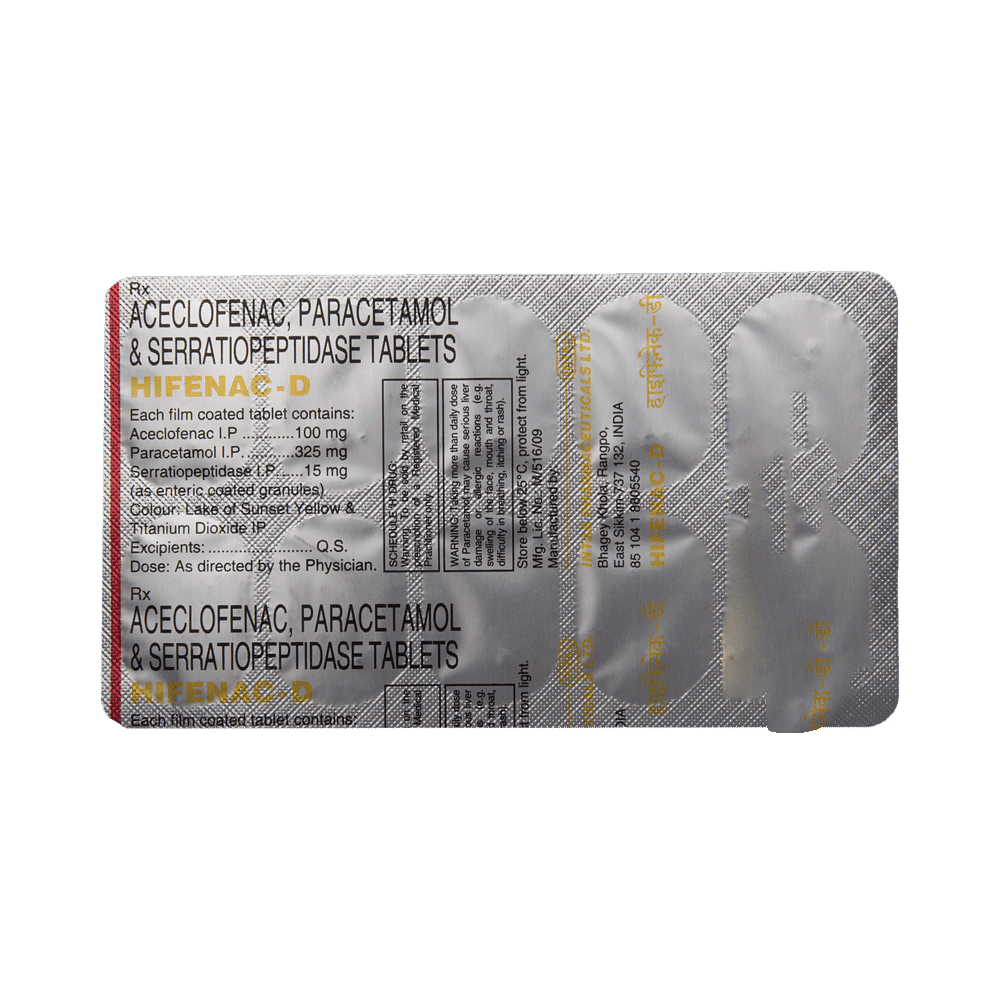
Hifenac-D Tablet
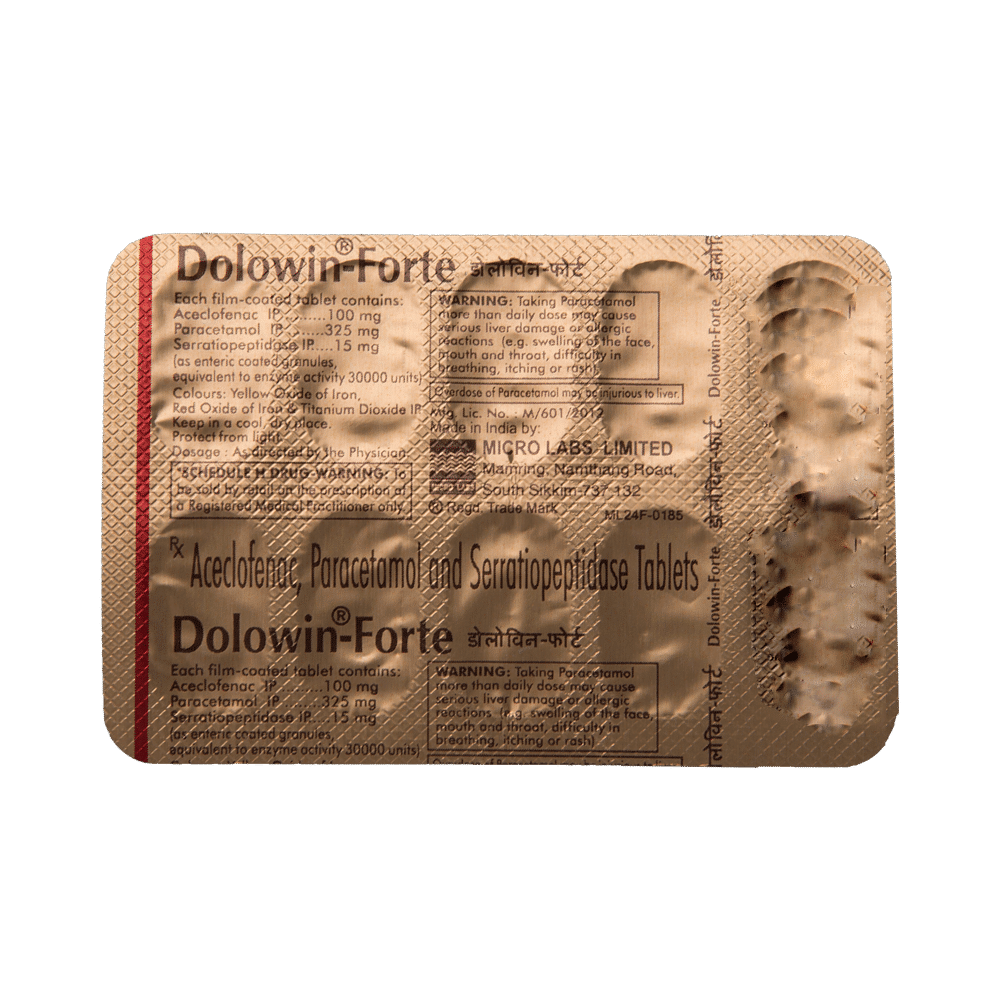
Dolowin-Forte Tablet

Muclonac SP 100mg/325mg/15mg Tablet
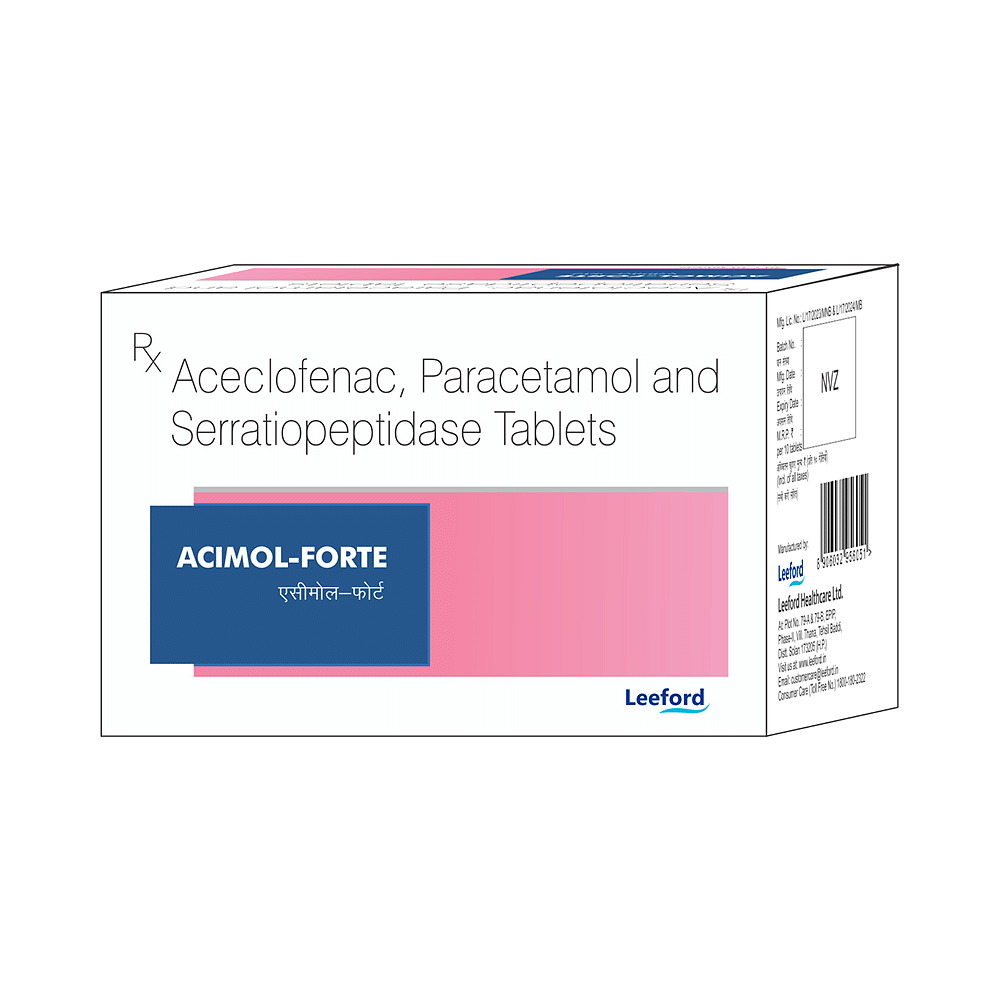
Acimol-Forte Tablet
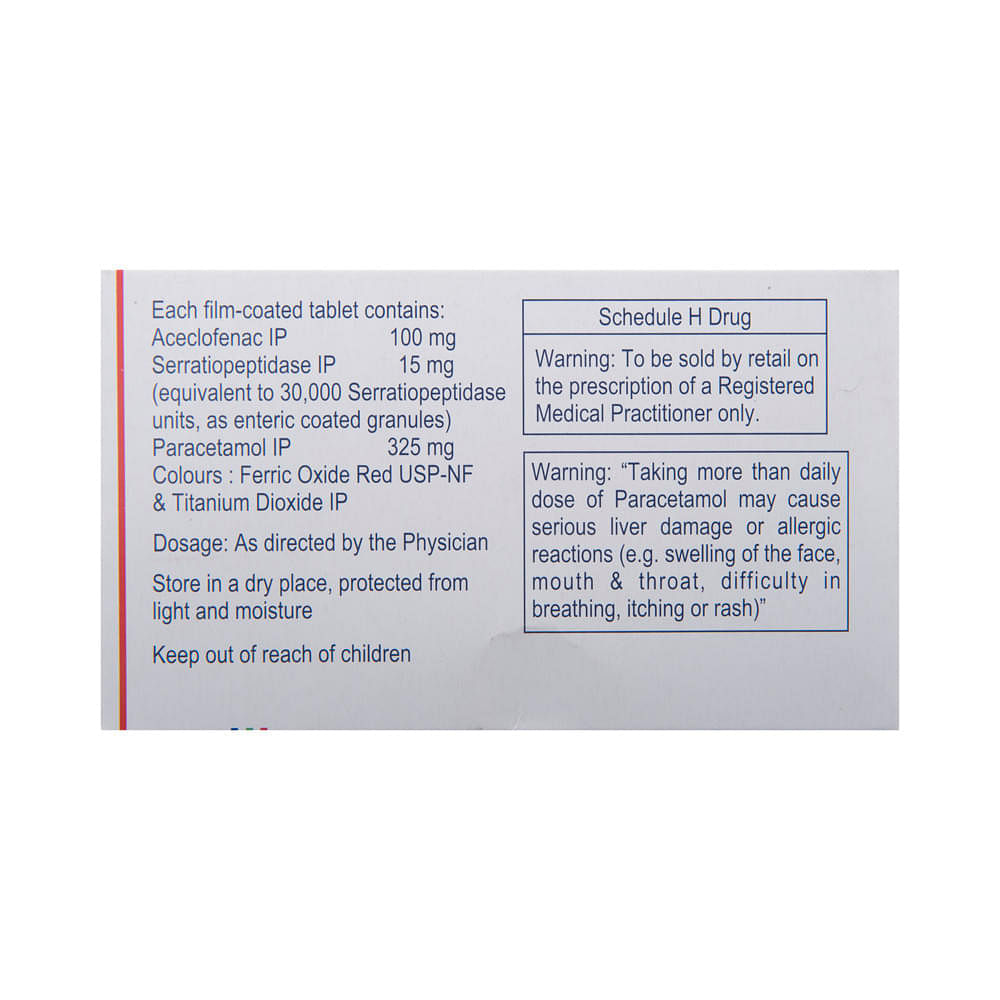
Zerodol-SP Tablet
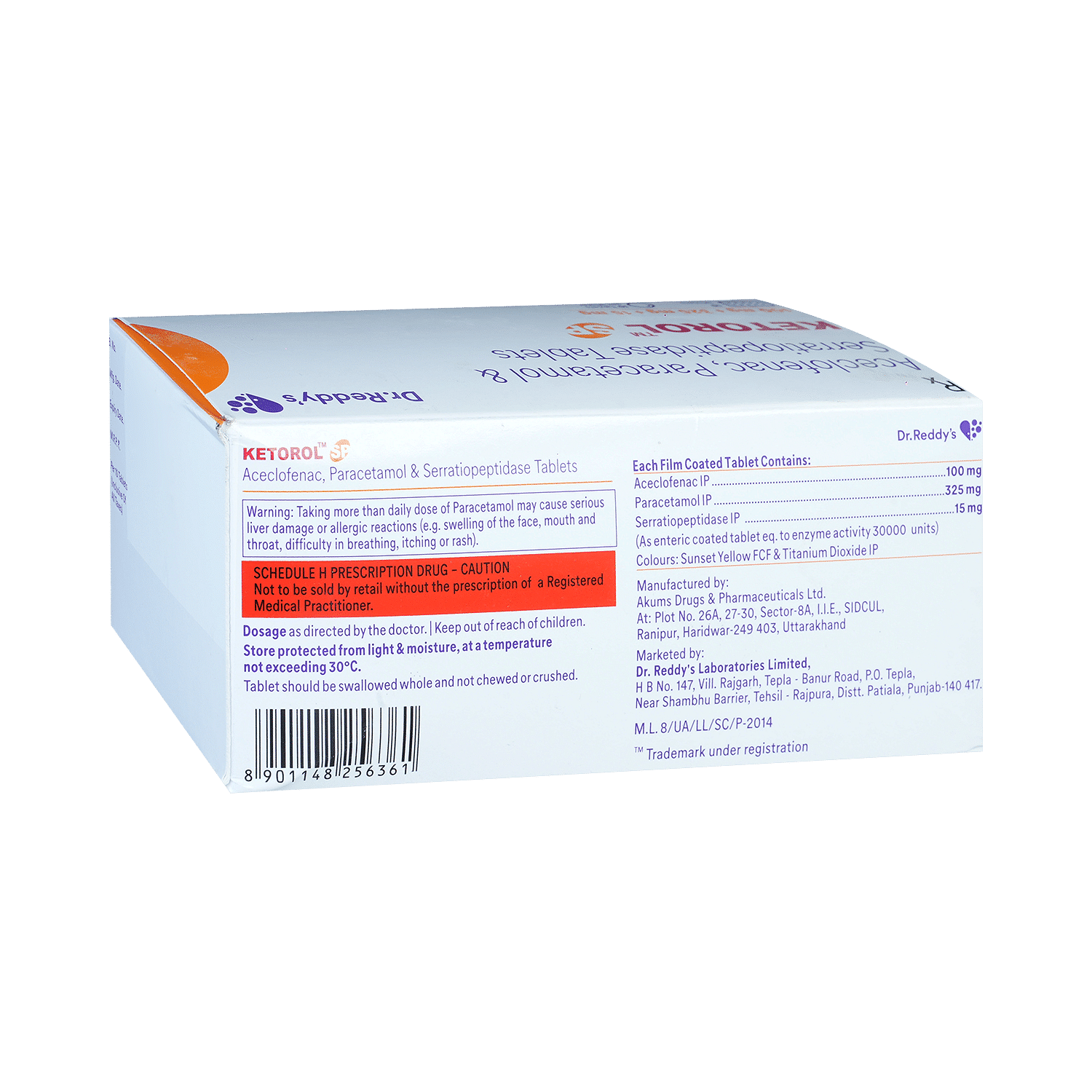
Ketorol SP Tablet
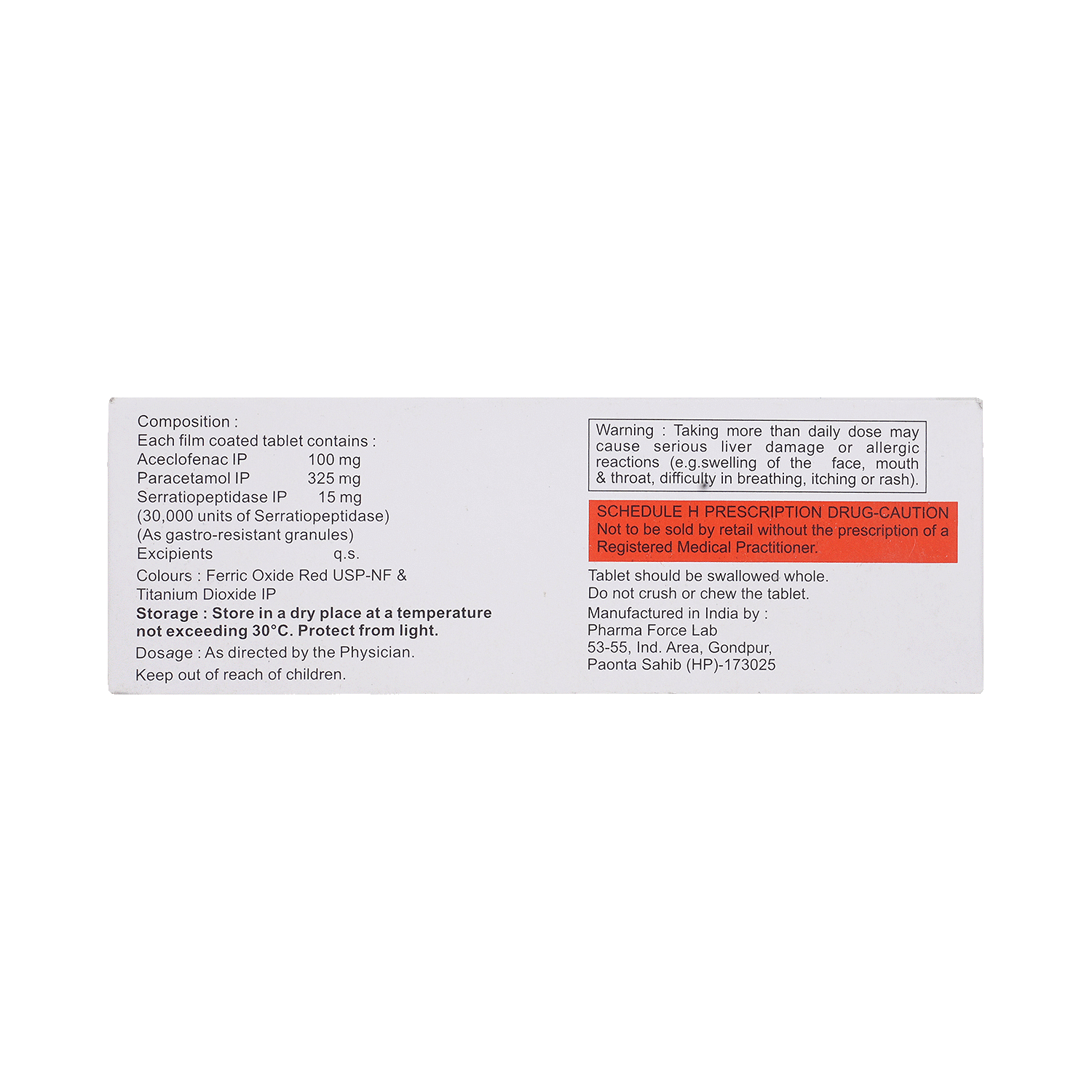
Dolokind-AA Tablet
Frequently asked questions
What is Cpar-SP Tablet?
Cpar-SP Tablet contains aceclofenac, paracetamol, and serratiopeptidase. It is used to relieve pain and inflammation by reducing the levels of chemicals in the body that cause them.
Is Cpar-SP Tablet safe?
It's generally considered safe for most people. However, potential side effects include nausea, vomiting, stomach pain, heartburn, and diarrhea. If you experience persistent problems, inform your doctor immediately.
Can I stop taking Cpar-SP Tablet when my pain is relieved?
This medication is usually taken for a short time and can be stopped once your pain improves. Continue following your doctor's recommendations.
Can Cpar-SP Tablet cause nausea and vomiting?
Yes, this medicine can cause nausea and vomiting in some people. Take it with milk, food, or antacids to alleviate these symptoms. Avoid taking fatty or fried foods and drink fluids often if you are experiencing vomiting. Consult your doctor if vomiting persists or you notice signs of dehydration like dark urine and infrequent urination. Do not take any other medications without discussing them with your doctor.
Can Cpar-SP Tablet cause dizziness?
Yes, this medicine can cause dizziness (feeling faint, weak, unsteady, or lightheaded) in some individuals. If you feel dizzy, rest for a while and resume only when you feel better.
Are there any contraindications with taking Cpar-SP Tablet?
Avoid this medication if you are allergic to aceclofenac, paracetamol, or serratiopeptidase. It should also be avoided in those with a history of stomach ulcers, active/recurrent gastric bleeding, heart failure, high blood pressure, and kidney disease.
Can I take Cpar-SP Tablet with vitamin B-complex?
Yes, you can take this medication with vitamin B-complex preparations. This helps to relieve pain while addressing potential vitamin deficiencies that may be contributing to your symptoms.
Can the use of Cpar-SP Tablet cause kidney damage?
Long-term use of this medicine can potentially damage your kidneys. Normal kidneys produce prostaglandins which protect them from damage, but using painkillers lowers these levels, leading to kidney damage over time. It's not recommended for people with pre-existing kidney issues.
Can I take a higher dose of Cpar-SP Tablet than recommended?
Do not exceed the recommended dosage as it can increase side effect risks. Consult your doctor if you experience increased pain or if the prescribed doses aren't providing relief.
What are the instructions for storage and disposal of Cpar-SP Tablet?
Store this medication in its original package or container, tightly sealed. Follow the instructions on the label for proper storage. Dispose of unused medicine safely to prevent it from reaching pets, children, or others.


